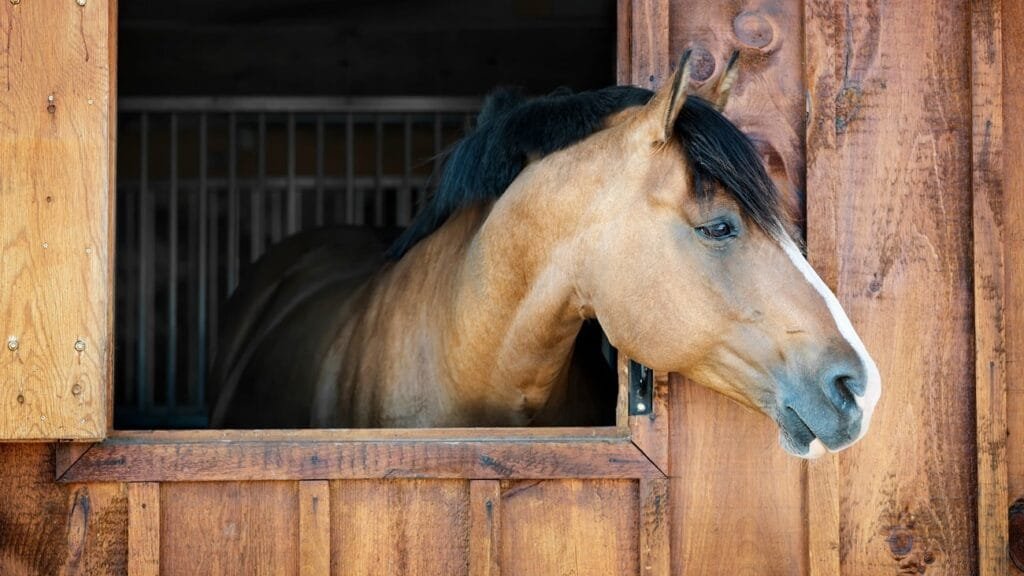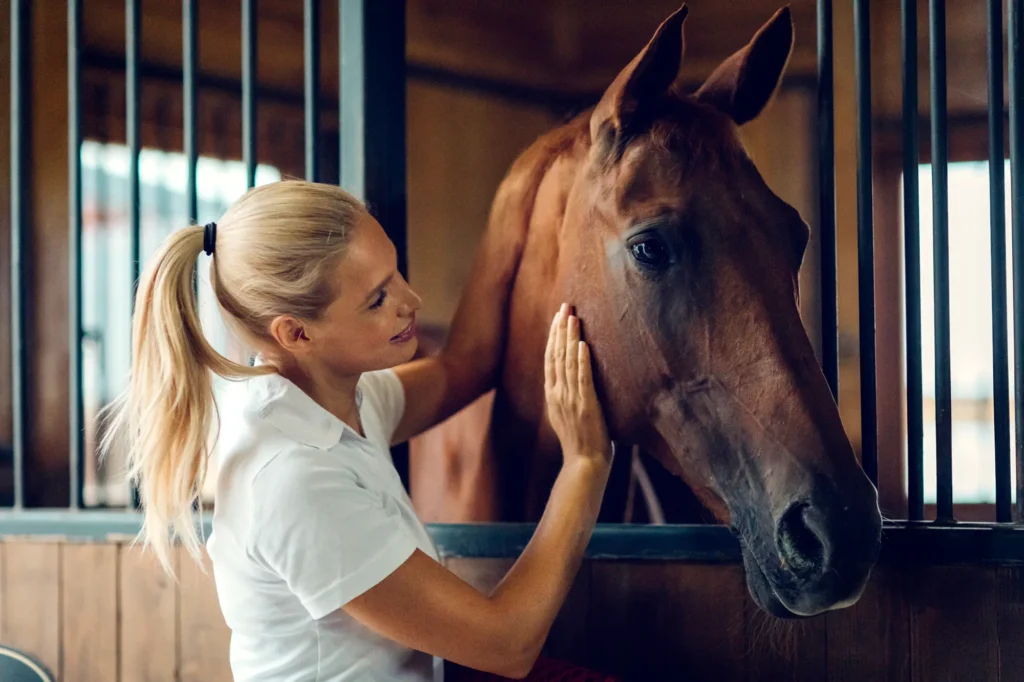Horses, with their sensitive nature and herd instincts, are prone to experiencing stress from various factors in their environment.
As caretakers and riders, it’s crucial to recognize these stressors and understand their effects on our equine companions. By addressing these issues effectively, we can ensure the well-being and performance of horses.
Spotting the Signs
Recognizing stress in horse requires a keen eye and an understanding of his unique body language. Subtle cues like pinned ears, restlessness, changes in eating habits, or excessive sweating can all indicate elevated stress levels. Keep a close watch on your horse’s behavior during daily activities, as early detection allows for timely intervention. Know his baseline behavior so that you are able to spot warning signs early on.
1.Environmental Changes
Horses are creatures of habit, thriving on routine and familiarity. Any change in their environment can trigger stress responses. Common environmental stressors include:
- Moving to a New Stable: Transitioning to a new barn or stable disrupts the horse’s established routine and social dynamics. They may feel anxious in unfamiliar surroundings and take time to adjust.
- Changes in Routine: Alterations in feeding times, exercise schedules, or turnout routines can unsettle horses. They prefer predictability and may become agitated when their daily habits are disrupted.
- Noise and Activity: Loud noises, construction work, or busy environments with frequent human or vehicle traffic can startle and stress horses, affecting their behavior and overall well-being.
Managing Environmental Stress:
- Introduce changes gradually to allow horses time to adapt.
- Maintain a consistent daily routine for feeding, turnout, and exercise.
- Provide a quiet and calm environment, minimizing exposure to sudden loud noises or disturbances.
2. Physical Discomfort or Pain
Horses often mask signs of pain, making it challenging to detect physical issues early. However, chronic discomfort or acute pain can lead to significant stress. Common sources of physical stress include:
- Ill-Fitting Tack: Poorly fitting saddles, bridles, or other equipment can cause discomfort, leading to soreness, stiffness, and even injuries over time.
- Dental Problems: Issues such as sharp points, uneven wear, or dental disease can cause pain while chewing or carrying the bit, impacting the horse’s comfort and performance.
- Health Conditions: Digestive issues like ulcers, colic, or metabolic disorders, as well as musculoskeletal problems such as arthritis or tendon injuries, contribute to chronic stress and discomfort.
Managing Physical Stress:
- Ensure proper fitting of tack and equipment, regularly checking for signs of discomfort.
- Schedule regular dental exams and treatments to maintain oral health.
- Monitor for signs of illness or injury and consult with a veterinarian promptly if issues arise.
3. Social Factors
Horses are social animals that establish hierarchies within their herds. Social interactions and dynamics play a crucial role in their well-being. Common social stressors include:
- Social Isolation: Horses thrive on companionship and can become stressed when isolated from herd mates or stablemates.
- New Introductions: Introducing a new horse into an established group can disrupt social dynamics, leading to tension, aggression, or exclusion, causing stress for all involved.
- Hierarchy and Dominance: Bullying or aggressive behavior from dominant horses within the group can create a stressful environment, particularly for subordinate or more sensitive horses.
Managing Social Stress:
- Provide opportunities for social interaction through turnout with compatible companions.
- Introduce new horses gradually, allowing time for social integration.
- Monitor herd dynamics and intervene if necessary to prevent bullying or aggression.

sources of stress in horses is essential for their health, well-being, and performance. By understanding the common causes of equine stress—such as environmental changes, physical discomfort or pain, and social factors—we can take proactive steps to minimize these stressors and create a supportive environment for our equine partners. Regular observation, thoughtful management practices, and prompt veterinary care when needed will contribute to happier, healthier horses capable of performing at their best.
By prioritizing the mental and physical well-being of our horses, we not only enhance their quality of life but also strengthen the bond and trust between horse and caretaker, fostering a partnership built on mutual understanding and respect.




